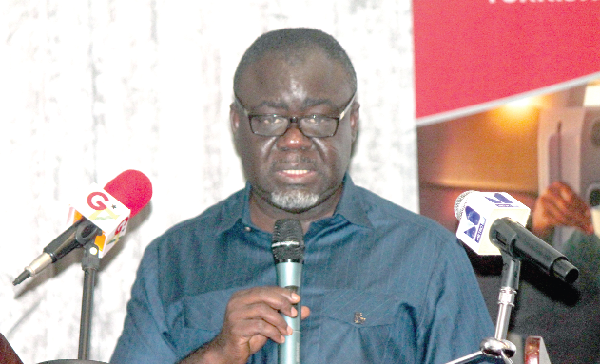
Resist temptation to block airline’s repatriation of profits— IATA cautions
The international body of association of airlines is warning Ghana against any move to prevent the repatriation of profits by its members.
The International Air Transport Association (IATA) said there was the need for the country to resist the temptation of such an action because of its potential impact on the profitability of airlines.
Advertisement
Such a move would also impact the country’s attractiveness to international investors and derail the progress made so far by the country as far as the gains made in the aviation sector was concerned.
There are reports about Ghana planning to follow in the footsteps of Nigeria which has blocked multinationals including international airlines from repatriating their profits.
Sources said the government was planning to introduce a fresh policy to restrict access to foreign currency for imports as well as block investors seeking to repatriate their profits from doing so as part of a broader bid to halt the fast depreciation of the local currency.
But IATA maintained that any imposition of such policy may derail gains made by the country in the aviation industry over the years.
The Regional Vice-President of IATA in-charge of Africa and Middle East (AME), Kamil Al-Awadhi, at the fourth Aviation Ghana Stakeholders Breakfast Meeting in Accra, observed that any attempt to impose a policy of such nature may do Ghana more harm than good.
Consequently, he commended the government and the Bank of Ghana (BoG) for the exemplary way by which it was managing the repatriation of airline funds despite the economic challenges faced by the country.
The context
Nigeria last year blocked international carriers operating in that country from repatriating their profits amounting to some US$450 million as at July last year.
Africa's largest economy restricted access to foreign currency for imports and for investors seeking to repatriate their profits as the country addressed a severe US dollar shortage.
ICAO process
Mr Al-Awadhi also called on Ghana to follow the International Civil Aviation Organisation's (ICAO) process of increasing airport charges.
“Ghana must also resist the appetite of increasing charges without following the ICAO principles; such increases can lead to the erosion of Ghana’s competitiveness as a destination,” he said.
He said adherence to ICAO’s policies on charges and infrastructure through consultations with airlines and industry players was prior to ensuring fairness.
He said the recent increase in charge by Ghana Civil Aviation Authority (GCAA) and the introduction of new charges by Ghana Airport Company Limited (GACL) was an example in question.
Resilience
The vice-president noted the airline industry has been resilient in the face of the global pandemic, coronavirus COVID-19 crisis that shocked and disrupted the everyday lives of citizens of the world.
He said last year, airlines worldwide lost a combined US$6.9 billion down from the US$9.7 billion in 2021.
He said the fact that airlines were able to cut their losses in 2022 in an era of rising cost, labour shortages, strikes, operational disruptions and many mishaps plus growing economic uncertainties speaks volumes about people's desire and need for connectivity.
According to him, in 2023, it was expected that the industry would accrue US$4.7 billion profit, the first industry profit since 2019 which according to him was a great achievement, considering the scale of the financial and economic dimension caused by the governments’ imposed pandemic restrictions.
The global economy
The Minister of Transport, Kwaku Ofori Asiamah, said it was common knowledge that the global economy heavily depended on the air transport industry.
He said aviation connected people, cultures, and businesses reiterating the importance of the industry to the global economy.
However, he said the industry evolved around many different factors and actors for growth.
He said it was not the right time to raise charges while some actors in the value chain were trying to make up for the lost revenues during the COVID-19 pandemic.
The minister added that every increase deterred travellers and accrued less revenue not just for the airline but also for stakeholders across the aviation value chain, including manufacturers, maintenance, ground support.
The meeting
The breakfast meeting, which is an initiative of Aviation Ghana, is a series of dialogues that feature selected topics and is aimed at influencing government policies in favour of businesses in the aviation industry.
It brought together players in the private sector, policy makers and people from the government to deliberate on the recovery of the aviation industry.
On the theme, “Post-COVID-19 recovery process and the journey ahead. “Discussants included the Managing Director of GACL, Pamela Djamson-Tettey; Deputy Director General of GCAA, Daniel Acquah; customer service expert, J. N. Halm; and Accountable Manager of Passion Air, Edward Annan.



